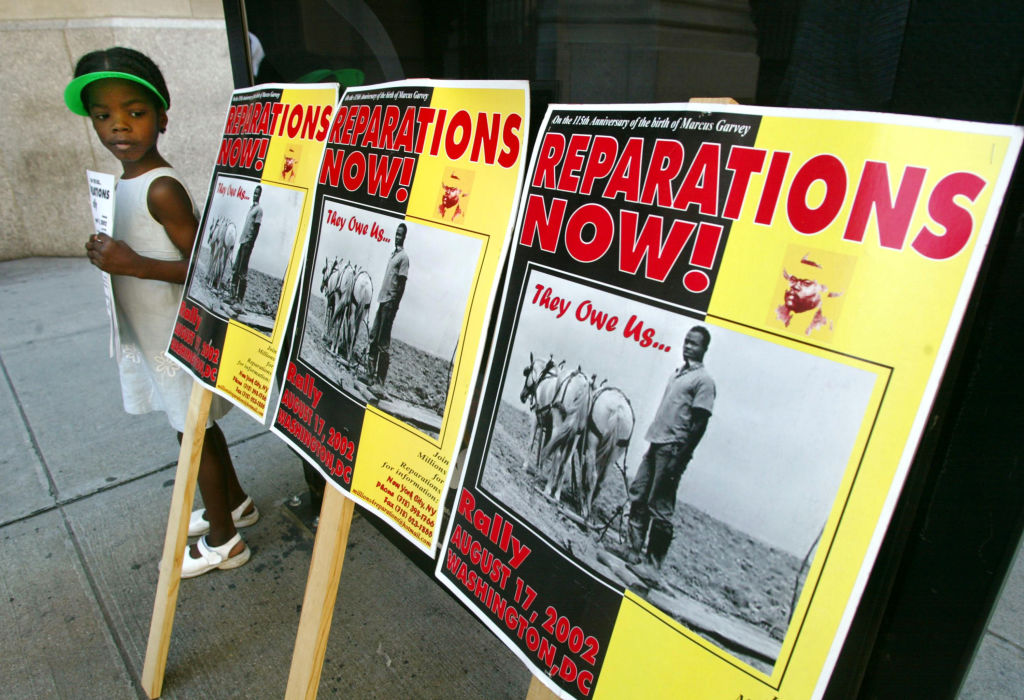NAACP Opposes Cash Reparations To Descendants Of Enslaved In San Francisco
Source: Mario Tama / Getty
In a stunning turn of events, the San Francisco chapter of the NAACP has come out in opposition to a reparations proposal for cash payments to the city’s Black residents in an effort to atone for the lingering damages from slavery.
A city-appointed committee proposed $5 million payouts to Black adults who are descendants of enslaved people with a guaranteed annual income of at least $97,000 for 250 years. The committee also proposed the elimination of personal debt and homes in San Francisco with a price tag of just $1 a family.
But while it appeared the movement was gaining momentum, the NAACP San Francisco Branch tweeted a statement on Tuesday bashing the reparations proposal. Instead, the NAACP San Francisco Branch offered its own reparations proposal that does not include cash payments.
“We strongly believe that creating and funding programs that can improve the lives of those who have been impacted by racism and discrimination is the best path forward toward equality and justice,” San Francisco NAACP President Amos Brown said in a statement posted to Twitter.
The statement specifically “called on the Board of Supervisors to reject a one-time $5 million reparation payment to Blacks.”
Brown’s statement came hours after a hearing with the San Francisco Board of Supervisors. The committee discussed more than 100 recommendations, many of which were passionately supported by the board.
The post NAACP Opposes Cash Reparations To Descendants Of Enslaved In San Francisco appeared first on NewsOne.

